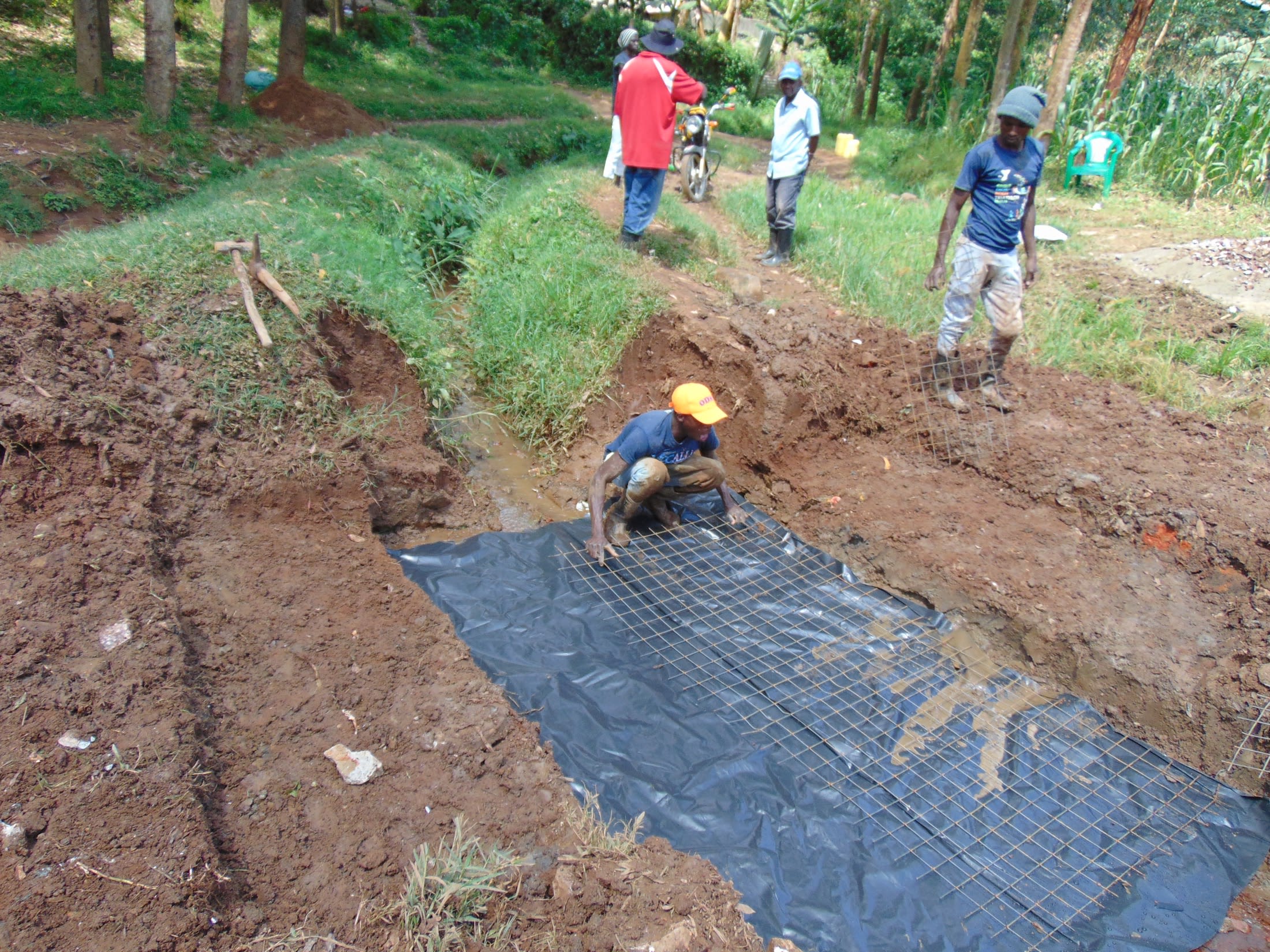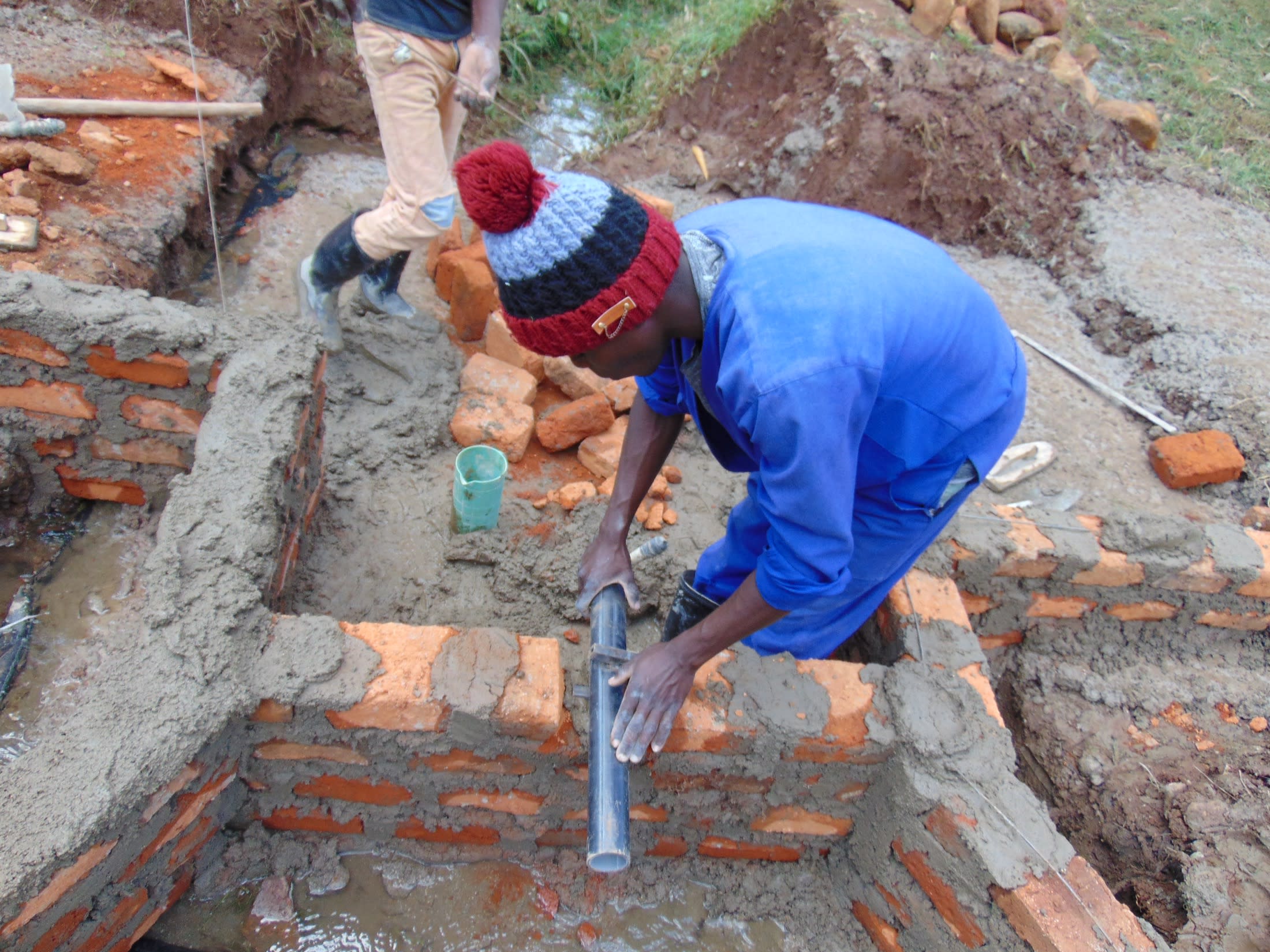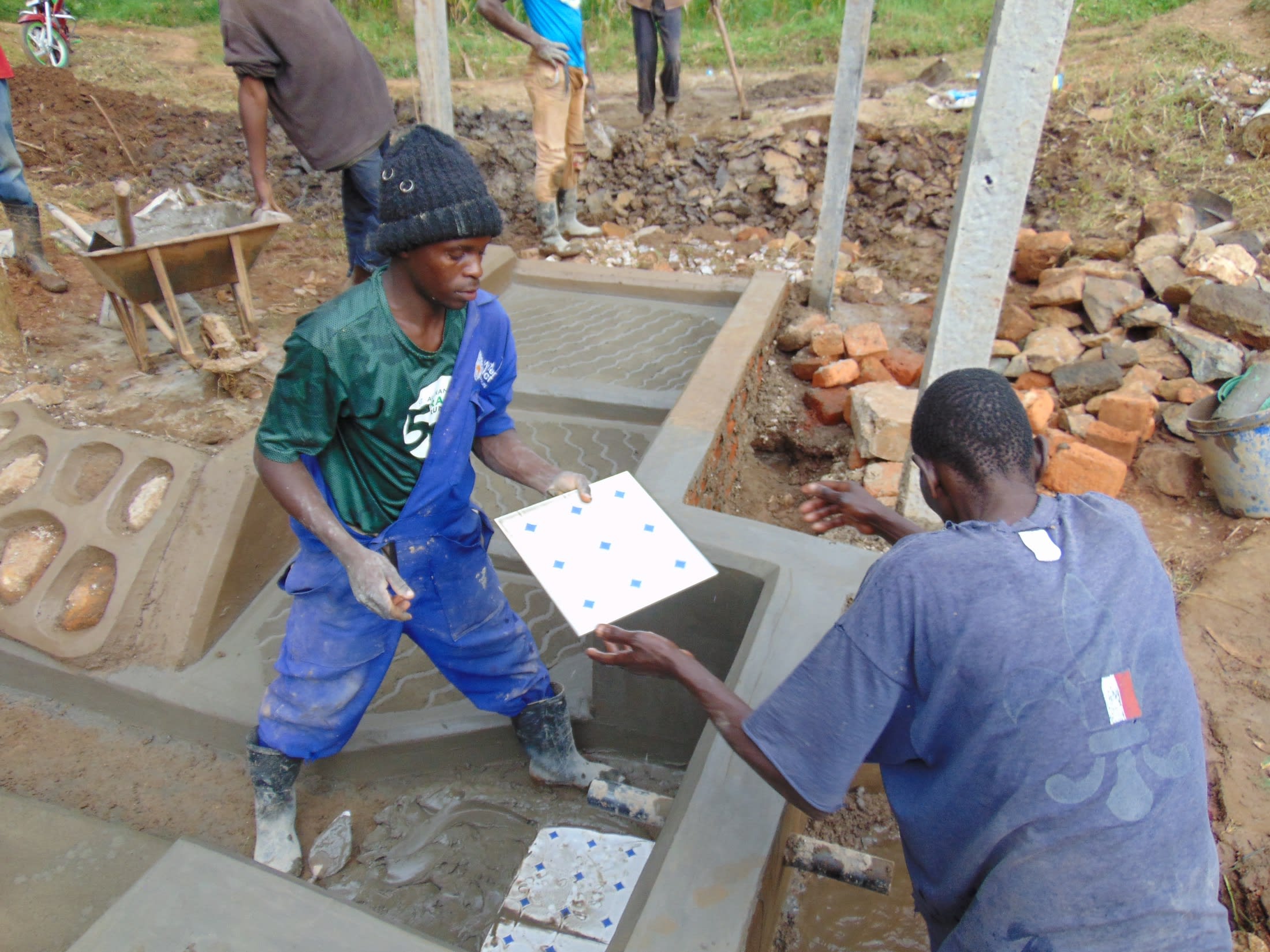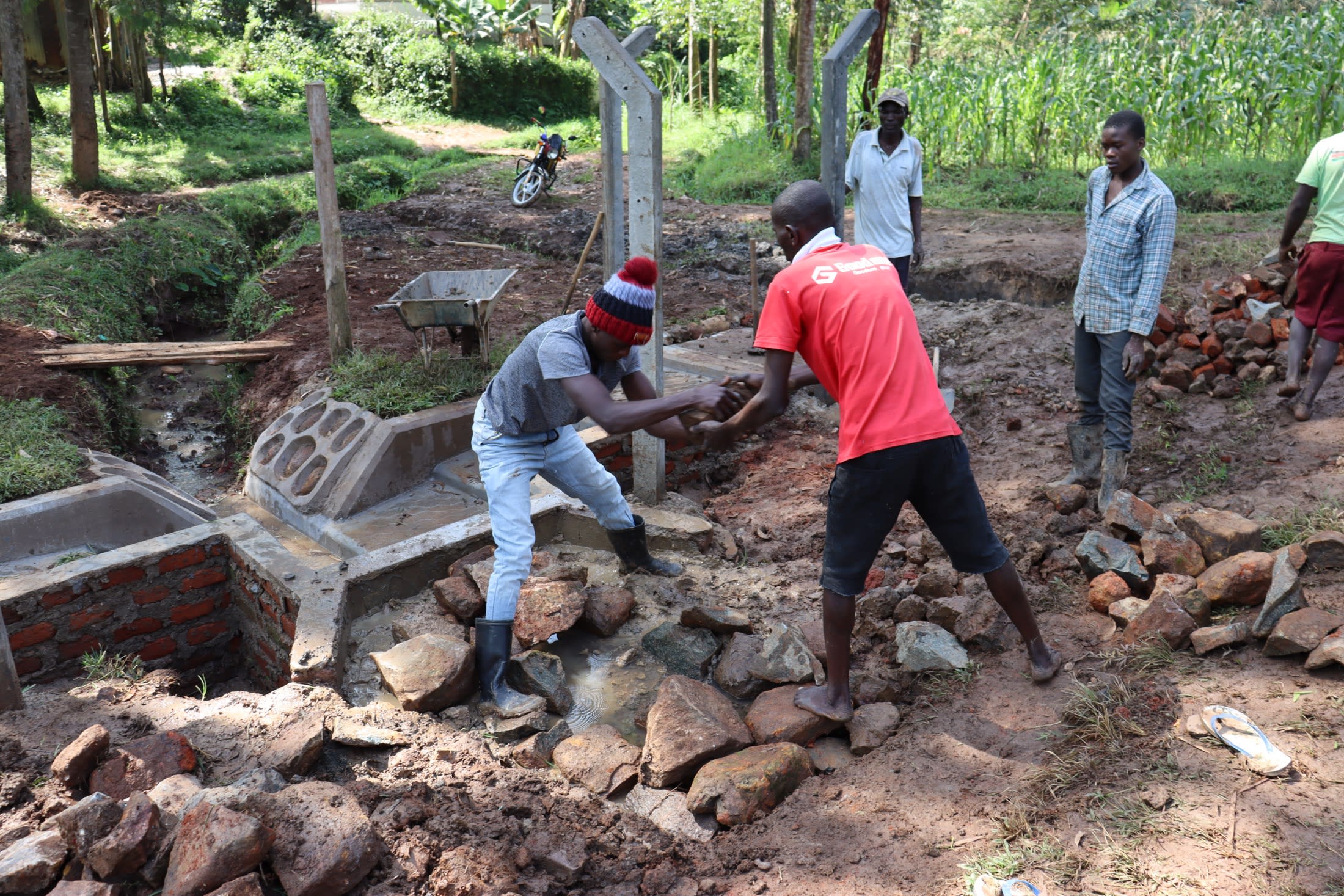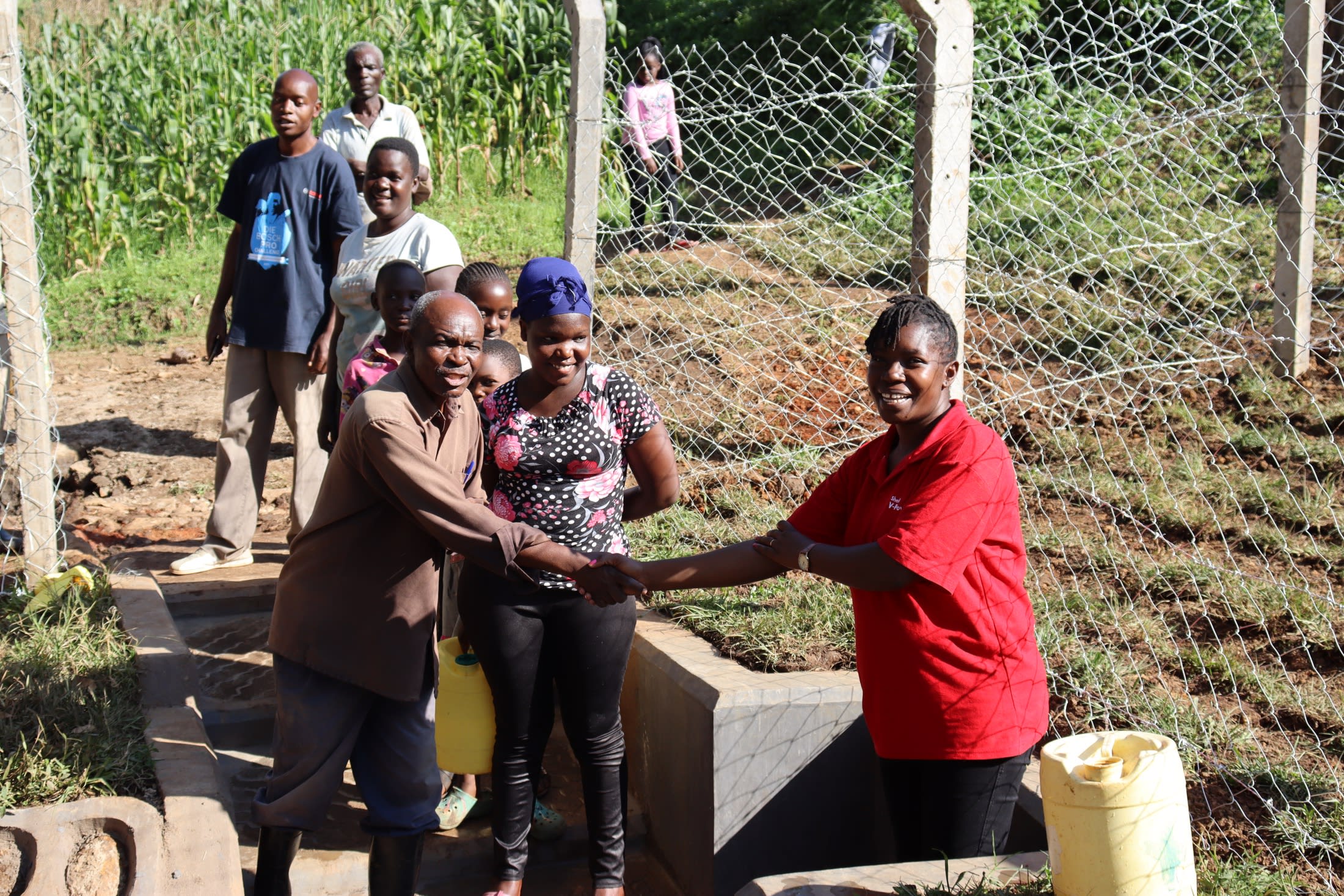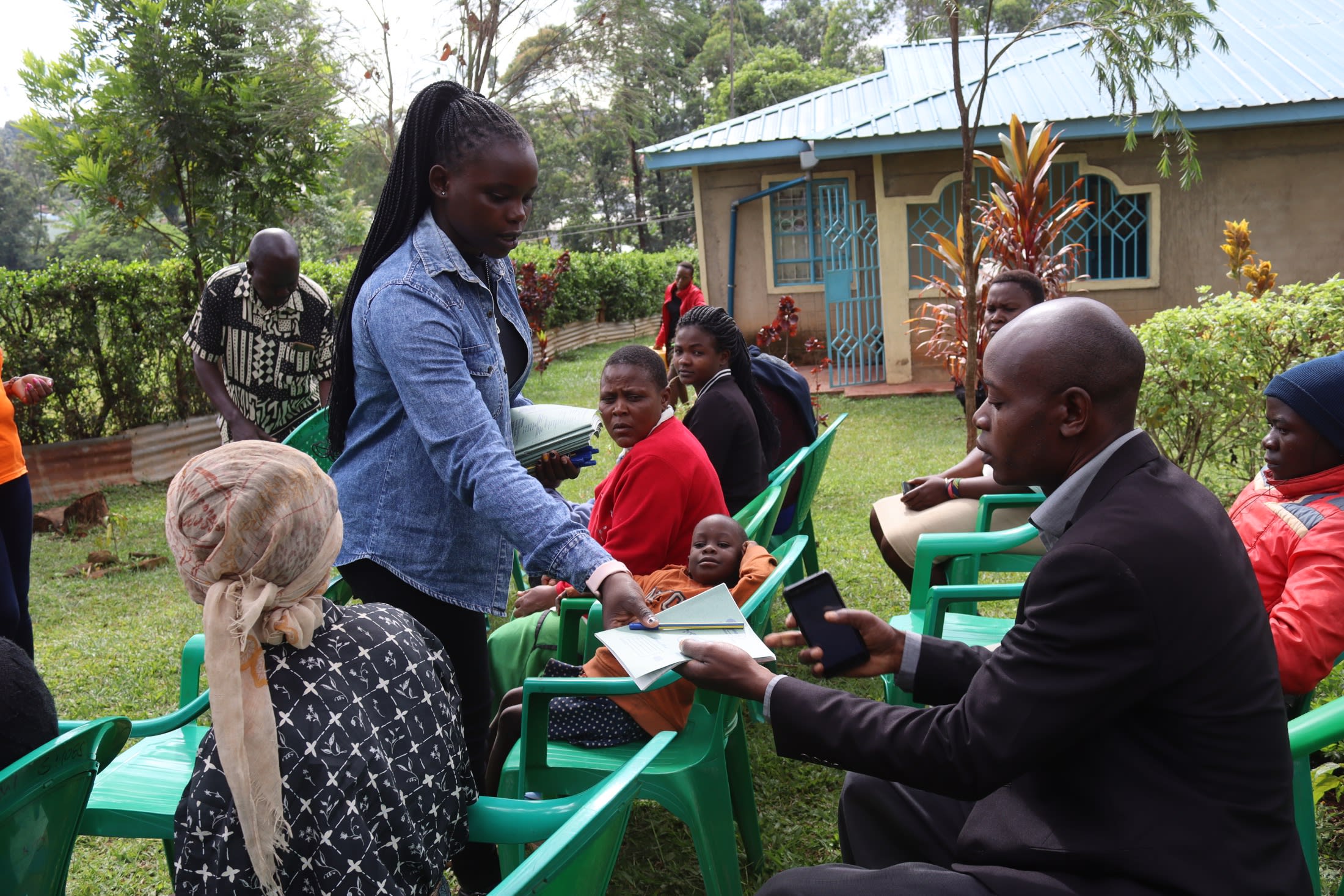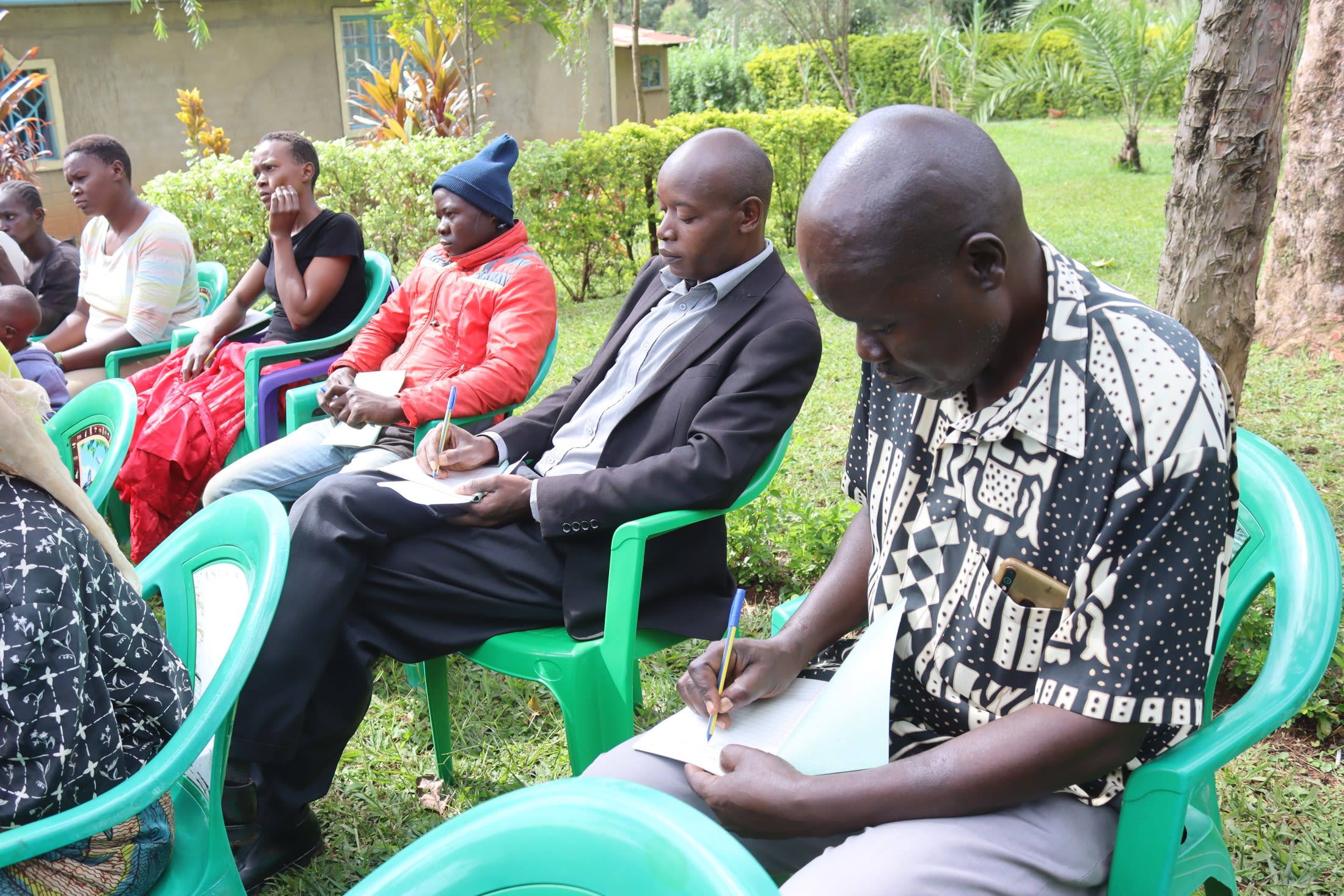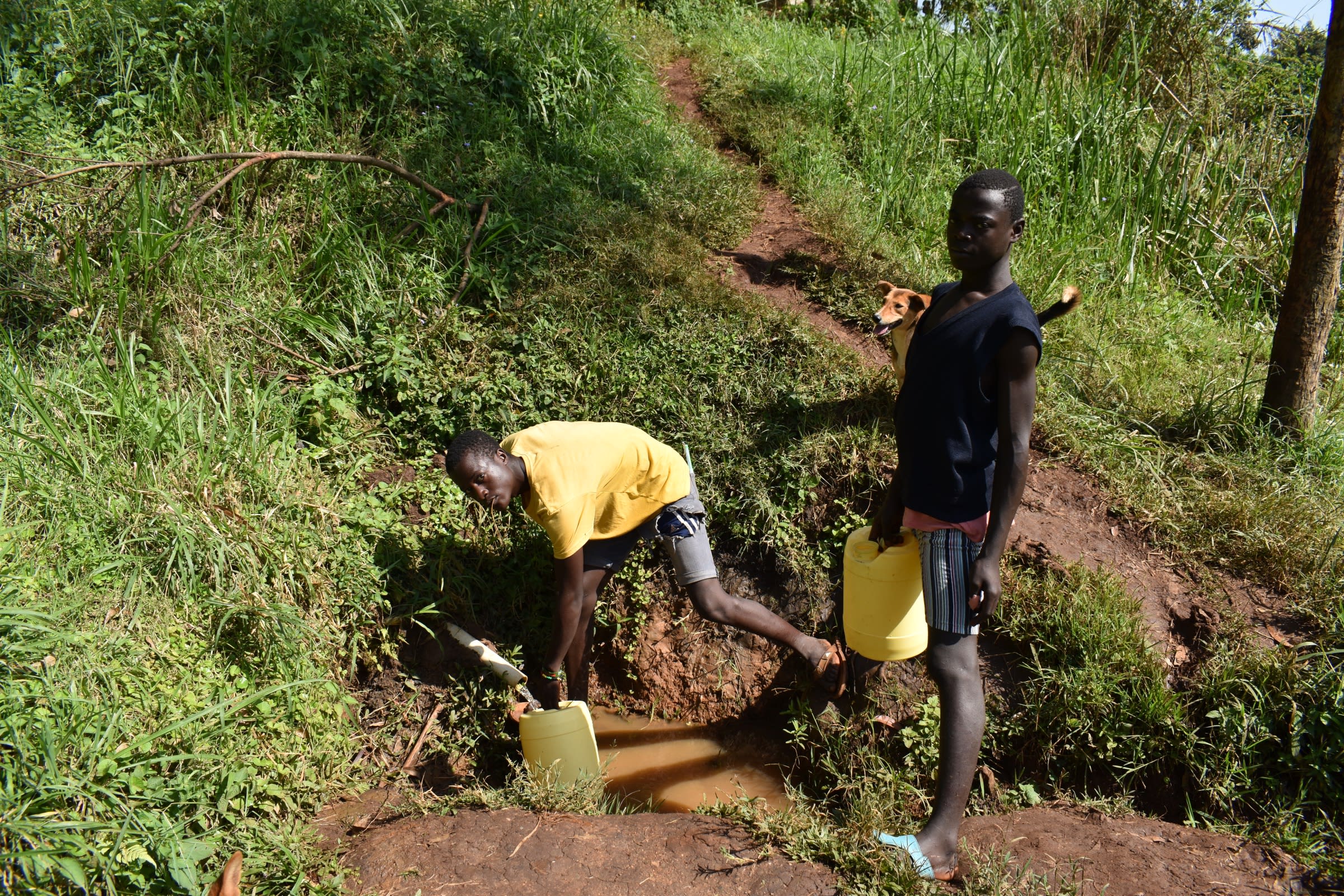All 280 people of Lutonyi village depend on Mmasi Lusinde Spring.
Some community members wear tall boots to fetch water because people must stand in the murky water while they fill a container. During the rainy season, the surrounding area becomes muddy and slippery, causing fetchers to fall. During the dry season, the water slows to a trickle. Either way, fetching water eats up time the community members can't spare.
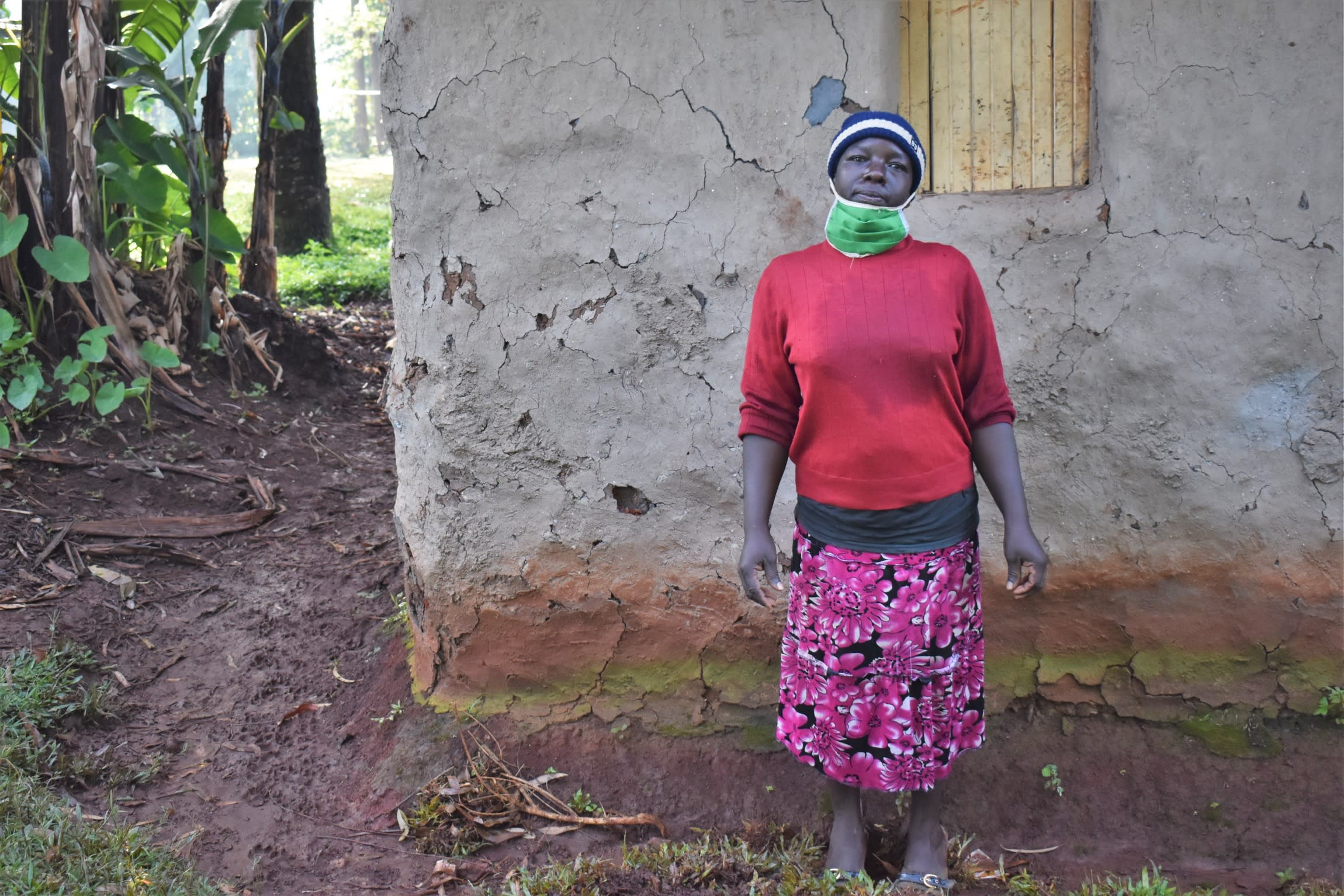
"Every day, I have to be up as early as 4 a.m. so I can avoid the long queue at the water point," said local farmer Christine Agasa, 49 (pictured above). "But even then, I find people who are already there, and so I have to wait 'til my turn comes. This is usually a very rigorous and tiresome experience."
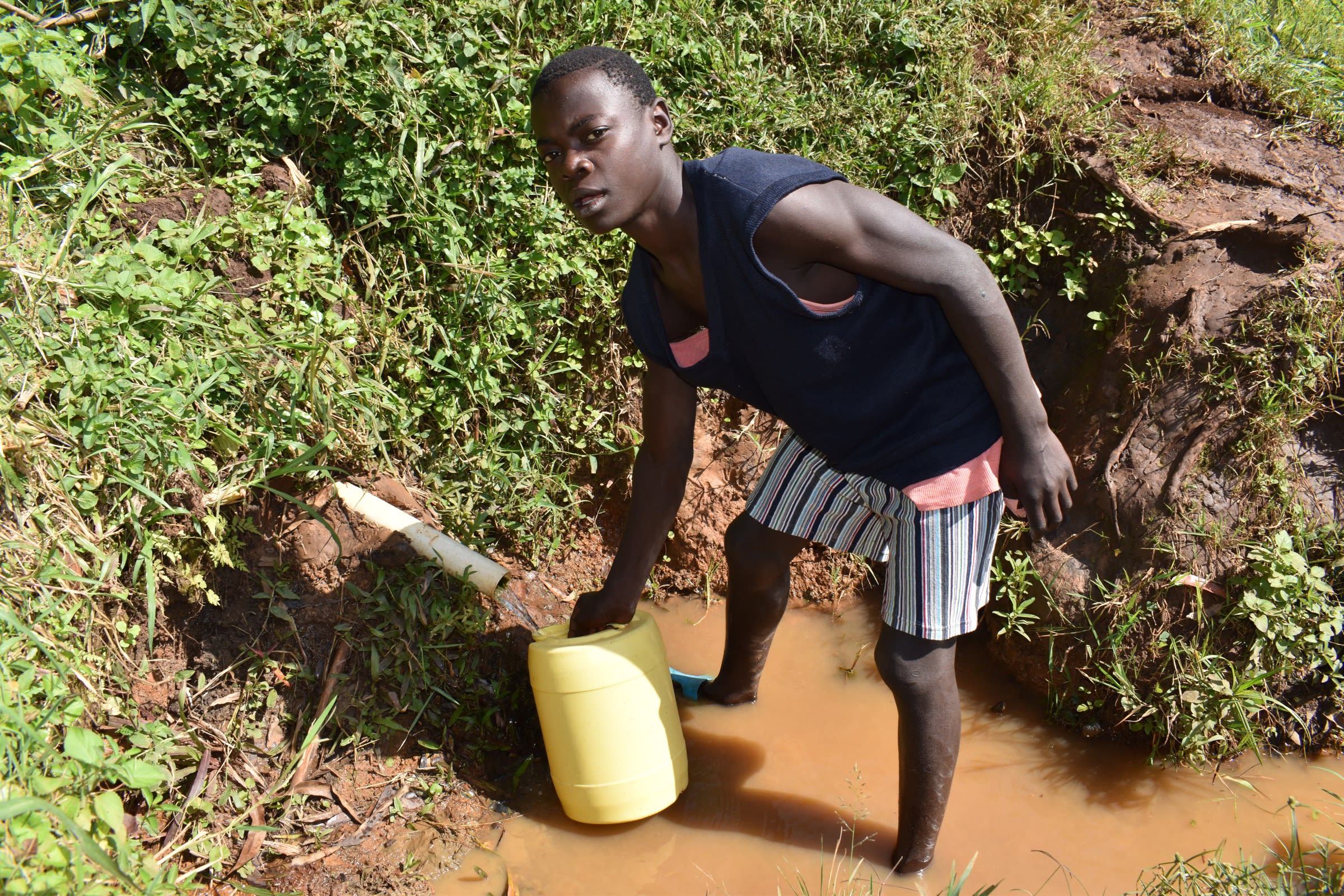
And for children who fetch water before leaving for school, this everyday delay has consequences beyond just wasted time. "Sometimes I have to be up as early as 5am so as to be at the water point early enough to get water for my use before I leave for school," said Eric W., 18 (pictured above). "Sometimes, I find a lot of people waiting. This, in turn, causes me to be late for school and leads to me being punished."
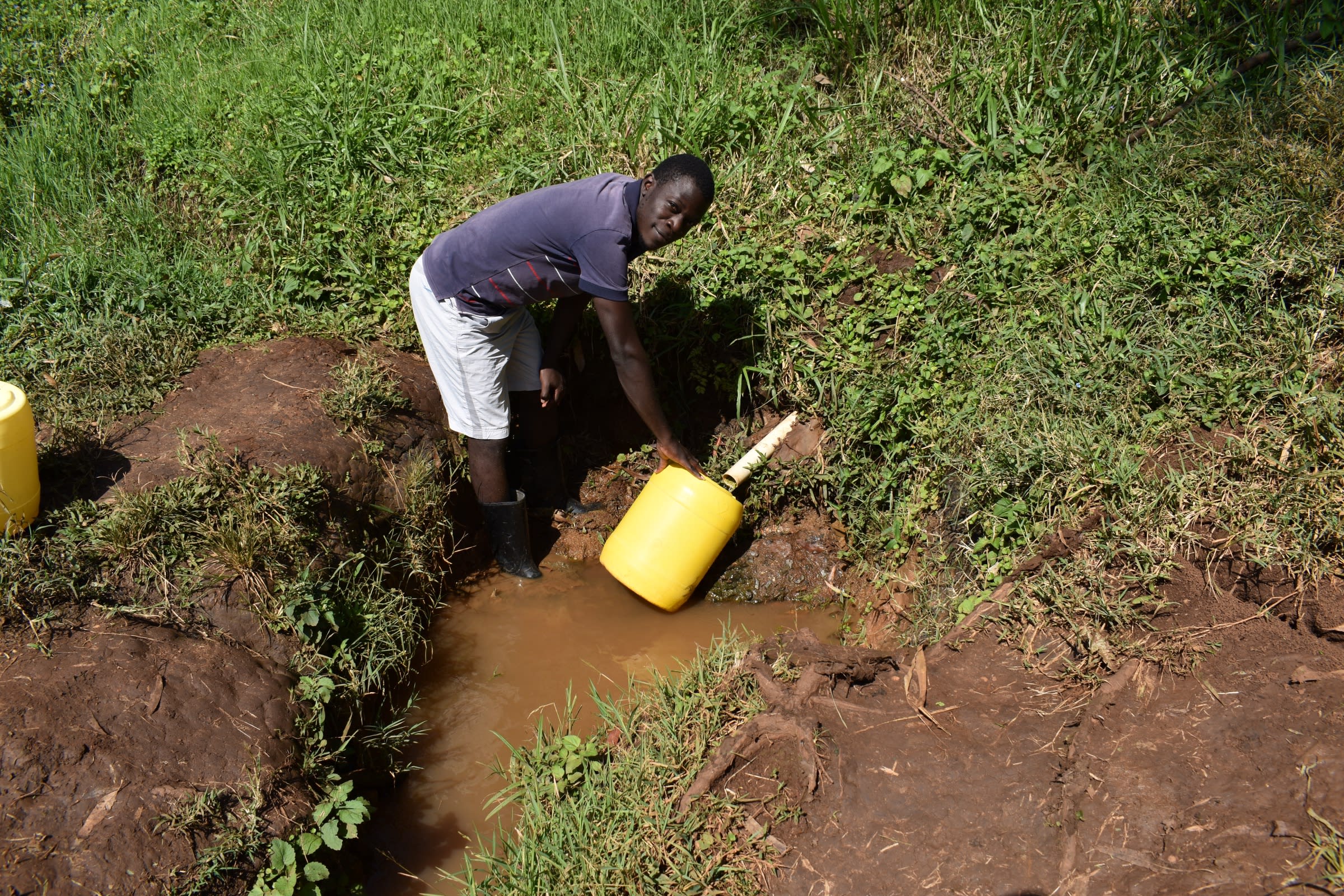
If time wastage were the spring's only problem, it would be bad enough. But the water at this open source is also contaminated, leaving the people who drink it sick with typhoid, bilharzia, and chronic diarrhea. For a community whose roads become impassable during the rainy season, these sicknesses can have tragic consequences for those who can't travel for treatment.
With a protected spring, people will have an easier time accessing the spring, which will reduce the time they have to wait for water each day. Drinking clean water will lower or eradicate water-related illness and free up their energy for more productive things than staying alive or standing in line.
What We Can Do:
Spring Protection
Protecting the spring will help provide access to cleaner and safer water and reduce the time people have to spend to fetch it. Construction will keep surface runoff and other contaminants out of the water. With the community’s high involvement in the process, there should be a good sense of responsibility and ownership for the new clean water source.
Fetching water is a task predominantly carried out by women and young girls. Protecting the spring and offering training and support will, therefore, help empower the female members of the community by freeing up more of their time and energy to engage and invest in income-generating activities and their education.
Training on Health, Hygiene, COVID-19, and More
To hold trainings during the pandemic, we work closely with both community leaders and the local government to approve small groups to attend training. We ask community leaders to invite a select yet representative group of people to attend training who will then act as ambassadors to the rest of the community to share what they learn. We also communicate our expectations of physical distancing and wearing masks for all who choose to attend.
The training will focus on improved hygiene, health, and sanitation habits in this community. We will also have a dedicated session on COVID-19 symptoms, transmission routes, and prevention best practices.
With the community’s input, we will identify key leverage points where they can alter their practices at the personal, household, and community levels to affect change. This training will help to ensure participants have the knowledge they need about healthy practices and their importance to make the most of their water point as soon as water is flowing.
Our team of facilitators will use a variety of methods to train community members. Some of these methods include participatory hygiene and sanitation transformation, asset-based community development, group discussions, handouts, and demonstrations at the spring.
One of the most important issues we plan to cover is the handling, storage, and treatment of water. Having a clean water source will be extremely helpful, but it is useless if water gets contaminated by the time it is consumed. We and the community strongly believe that all of these components will work together to improve living standards here, which will help to unlock the potential for these community members to live better, healthier lives.
We will then conduct a small series of follow-up trainings before transitioning to our regularly scheduled support visits throughout the year.
Training will result in the formation of a water user committee, elected by their peers, that will oversee the operations and maintenance of the spring. The committee will enforce proper behavior around the spring and delegate tasks that will help preserve the site, such as building a fence and digging proper drainage channels. The fence will keep out destructive animals and unwanted waste, and the drainage will keep the area’s mosquito population at a minimum.

 Protected Spring
Protected Spring
 Rehabilitation Project
Rehabilitation Project















